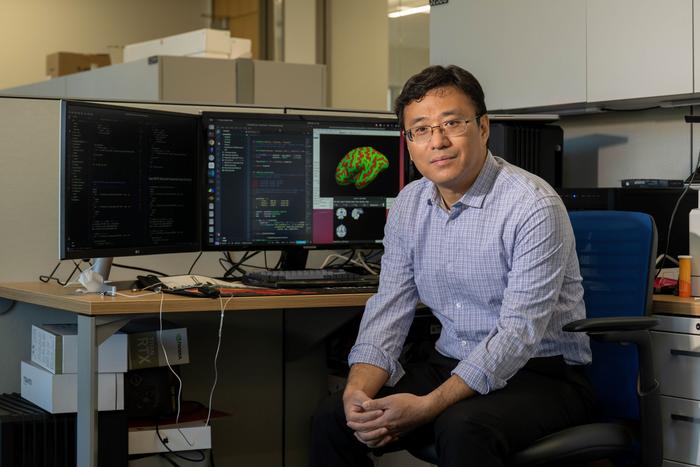About 55 million people worldwide are living with dementia, according to the World Health Organization. The most common form is Alzheimer’s disease, an incurable condition that causes brain function to deteriorate.

Credit: Courtesy University of Texas at Arlington
About 55 million people worldwide are living with dementia, according to the World Health Organization. The most common form is Alzheimer’s disease, an incurable condition that causes brain function to deteriorate.
In addition to its physical effects, Alzheimer’s causes psychological, social and economic ramifications not only for the people living with the disease, but also for those who love and care for them. Because its symptoms worsen over time, it is important for both patients and their caregivers to prepare for the eventual need to increase the amount of support as the disease progresses.
To that end, researchers at The University of Texas at Arlington have created a novel learning-based framework that will help Alzheimer’s patients accurately pinpoint where they are within the disease-development spectrum. This will allow them to best predict the timing of the later stages, making it easier to plan for future care as the disease advances.
“For decades, a variety of predictive approaches have been proposed and evaluated in terms of the predictive capability for Alzheimer’s disease and its precursor, mild cognitive impairment,” said Dajiang Zhu, an associate professor in computer science and engineering at UTA. He is lead author on a new peer-reviewed paper published open access in Pharmacological Research. “Many of these earlier prediction tools overlooked the continuous nature of how Alzheimer’s disease develops and the transition stages of the disease.”
In work supported by more than $2 million in grants from the National Institutes of Health and the National Institute on Aging, Zhu’s Medical Imaging and Neuroscientific Discovery research lab and Li Wang, UTA associate professor in mathematics, developed a new learning-based embedding framework that codes the various stages of Alzheimer’s disease development in a process they call a “disease-embedding tree,” or DETree. Using this framework, the DETree can not only predict any of the five fine-grained clinical groups of Alzheimer’s disease development efficiently and accurately but can also provide more in-depth status information by projecting where within it the patient will be as the disease progresses.
To test their DETree framework, the researchers used data from 266 individuals with Alzheimer’s disease from the multicenter Alzheimer’s Disease Neuroimaging Initiative. The DETree strategy results were compared with other widely used methods for predicting Alzheimer’s disease progression, and the experiment was repeated several times using machine learning-methods to validate the technique.
“We know individuals living with Alzheimer’s disease often develop worsening symptoms at very different rates,” Zhu said. “We’re heartened that our new framework is more accurate than the other prediction models available, which we hope will help patients and their families better plan for the uncertainties of this complicated and devastating disease.”
He and his team believe that the DETree framework has the potential to help predict the progression of other diseases that have multiple clinical stages of development, such as Parkinson’s disease, Huntington’s disease, and Creutzfeldt-Jakob disease.
Journal
Pharmacological Research
DOI
10.1016/j.phrs.2023.107038
Method of Research
Data/statistical analysis
Subject of Research
People
Article Title
Disease2Vec: Encoding Alzheimer’s progression via disease embedding tree
Article Publication Date
14-Dec-2023
COI Statement
This work was supported by National Institutes of Health (R01AG075582, RF1NS128534). The authors declare that they have no known competing financial interests or personal relationships that could have appeared to influence the work reported in this paper.




